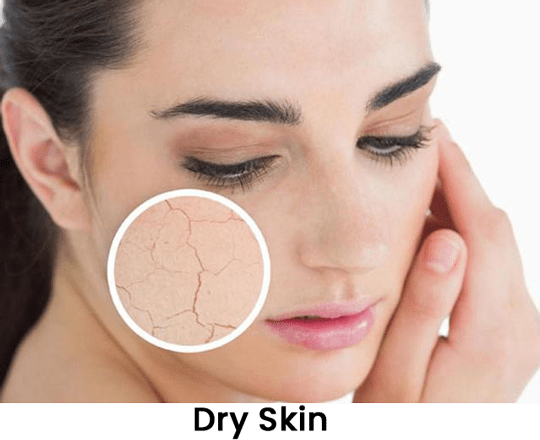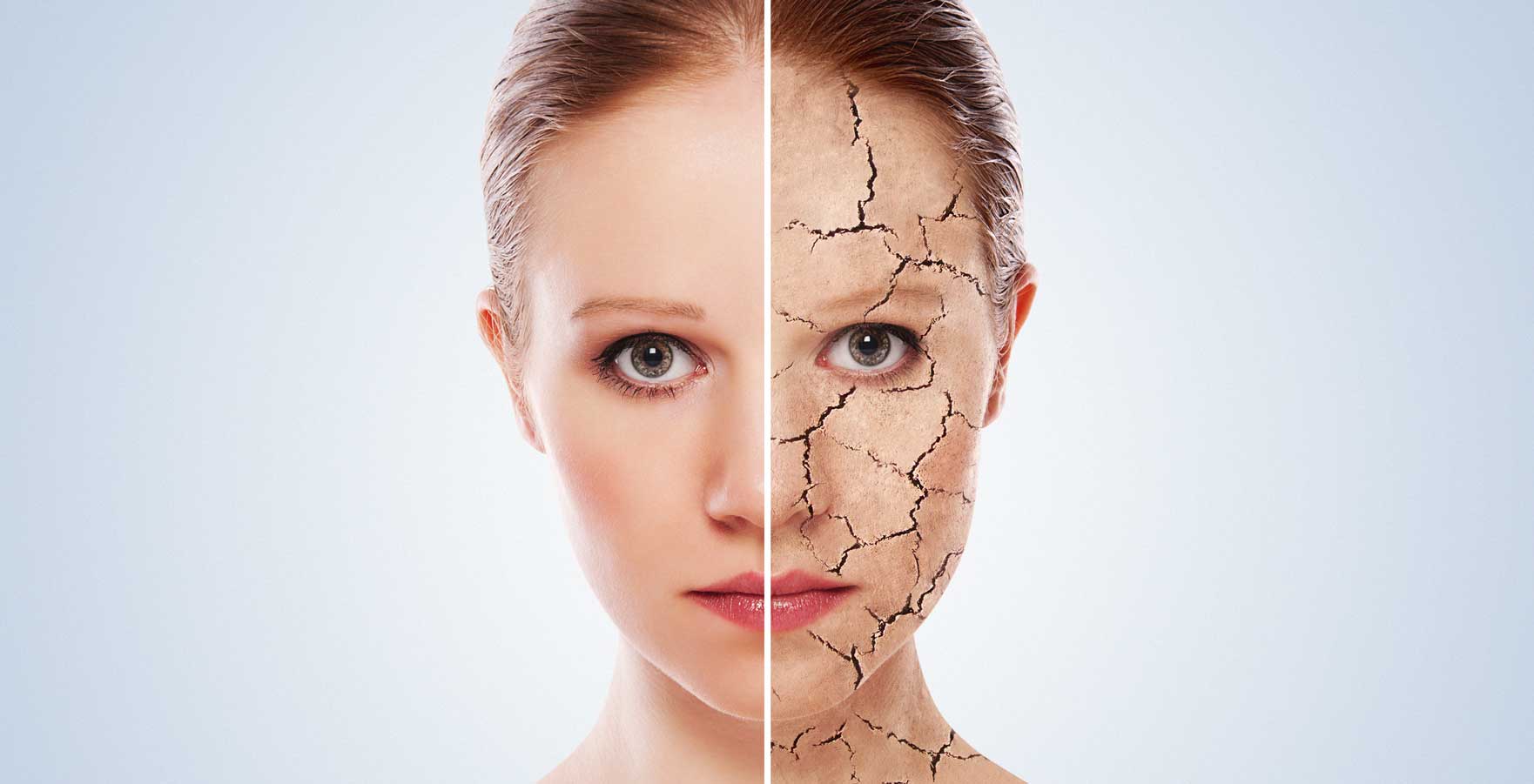
During the winter months, skin tends to be more dry than usual, however, you may notice or feel other skin conditions. Dry skin is a skin type and dehydrated skin is a condition that anyone can experience. Dry skin has a lack of oils, or lipids. Dry skin can be caused by many factors such as: makeup, diet, incorrect product usage, weather, and so on.
Dehydration is the loss of fluids. When we lose more fluid than we take in, our bodies become dehydrated. With dehydrated skin, there’s a lack of water in the stratum corneum, which is the top layer of the skin. According to the Mayo Clinic, in an adult, the symptoms begin with progressive thirst which evolves to extreme thirst, infrequent urination, dark-colored urine, fatigue, dizziness and/or confusion. If you are feeling thirsty your body is telling you it’s already to experience dehydration.
Dehydration will show up on your skin in the form of dull, ashen looking skin, will feel tight, flaky and itchy.When your skin is dehydrated it will create more oil to make up for the loss of water. This can cause breakouts, irritation and dry patches. However, your skin can be both dry and oily at the same time.
Dehydration can also be caused by these external factors such as: alcohol, medications, sodium, air travel, menstruation, stress, not eating enough fruits and vegetables, breastfeeding, vomiting and diarrhea, aging and caffeine.
“Lines of expression need botulinum toxin. Lines at rest need filler.” Dr. Schulman, New York City board-certified plastic surgeon, says that while Botox is a great choice for hitting those “crease points” where muscles contract, fillers are best for deep lines that are present even when facial muscles are not contracting. Hyaluronic acid fillers come in a variety of thicknesses. Your provider will perform an assessment and determine the right one for your particular skin type. “There are other fillers composed of calcium (like Radiesse), which are better for deep filling and can last 12 to14 months,” Dr. Schulman says.

Harsh or fragranced soaps can bring out dryness and rash, which is why it helps to choose a mild cleanser, such as Cetaphil or Aquanil, according to Board Certified Dermatologist Laurel Naversen Geraghty, MD. Be sure to take shorter, warm, not hot showers and pat the skin dry followed by a hydrating cream to seal in moisture.
Be sure to drink plenty of water, and if you are drinking caffeinated beverages, add more water, or herbal teas to your regimen.
To help hydrate your skin naturally, use natural humectants and occlusives in your skin care. Natural humectants include: honey, aloe, glycerin and hyaluronic acid. Humectants prevent loss of moisture. Using hyaluronic acid can hold up to 100 times its own weight in water. Occlusives form a barrier-like layer on the surface of your skin, preventing moisture from escaping. These include plant oils such as: shea butter, mango butter and others. It is best to layer products starting with the water-based ones first and then seal with the oil layer.
Exfoliating at least once per week, advises Francesca Fusco, assistant clinical professor of dermatology at the Icahn School of Medicine at Mount Sinai. “As dead skin builds up, it can diminish the absorption of moisturizers. Exfoliating once per week will remove these dead skin cells and allow your moisturizer to work better.”
Use a heavier oil-free and non-comedogenic moisturizer at night to counteract losing moisture while you sleep.
Be careful when washing in the morning, as most cleansers have surfactants that can strip the sebum off your skin.
Ensure you’re getting enough OMEGA-3 Essential Fatty Acids and eat water-rich fruits and vegetables such as watermelon, cucumber, apple, carrot, pear, celery and melon, to name a few.
If you have persistent, flaky areas such as the nose, around the ears, scalp, lower legs or elbows, visit your dermatologist who can check for skin conditions that can masquerade as dryness such as eczema, psoriasis, sebhorreic dermatitis or actinic keratoses.
Dry skin is an inherent skin condition that will probably be with you most of your life, whereas dehydration you can fix. For quick pick-me-ups, keep an herbal-facial mist handy throughout the day and use a good serum, and moisturizers and masks. Always wear a sunscreen, even during winter and when it’s cloudy outside, as this will also help minimize dehydration and the effects of aging.
Estheticians have an arsenal of treatments and knowledge to help you look and feel your best. Now is a great time to get a facial, check in and see if you need to change your skin care regimen as well. Just as we have seasons throughout the year, our skin goes through changes and we can’t stop the clock of time.




